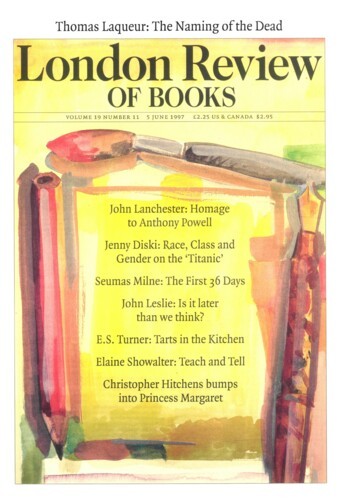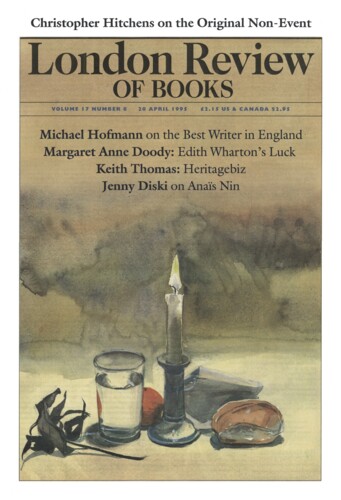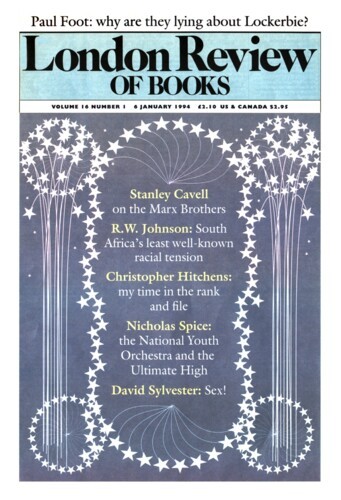Pseuds’ Skyscraper
Mark Lilla, 5 June 1997
My architecture is about presence and absence.’ The lecture hall at the American Academy in Rome was dark and on the projection screen before us was an image of jagged fields of colour. The speaker, a black-clad young architect from New York, was delivering his Fellow’s Lecture. Since most of the previous lectures had been given by historians occupied with mapping the drainage ditches of ancient Pompeii or cataloguing the patronage of Renaissance door jambs, his rambling ‘deconstructivist’ reflections on modern buildings brought a nervous titter from the unknowing audience. Only after the Derridian cloud evaporated and the speaker turned to his own work did the listeners feel themselves back on terra cognita. This ‘work’, as it turned out, consisted of a few modest apartment conversions in Manhattan, and slides of these evoked many polite questions about the placement of sinks and who paid for the wainscoting.



